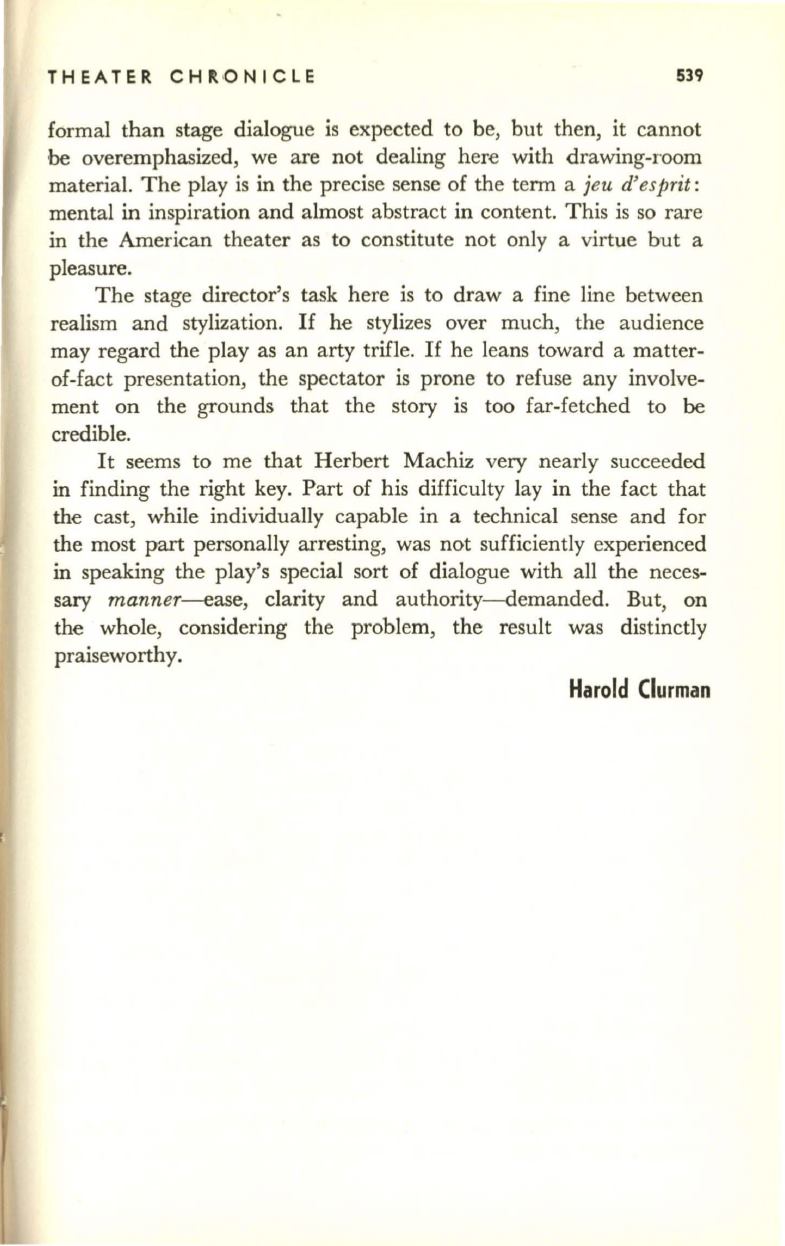
THEATER CHRONICLE
539
formal than stage dialogue is expected to be, but then, it cannot
be
overemphasized, we are not dealing here with drawing-room
material. The play is in the precise sense of the term a
jeu
d'
esprit:
mental in inspiration and almost abstract in content. This is so rare
in the American theater as to constitute not only a virtue but a
pleasure.
The stage director's task here is to draw a fine line between
realism and stylization.
If
he stylizes over much, the audience
may regard the playas an arty trifle.
If
he leans toward a matter–
of-fact presentation, the spectator is prone to refuse any involve–
ment on the grounds that the story is too far-fetched to
be
credible.
I t seems to me that Herbert Machiz very nearly succeeded
in finding the right key. Part of his difficulty lay in the fact that
the cast, while individually capable in a technical sense and for
the most part personally arresting, was not sufficiently experienced
in speaking the play's special sort of dialogue with all the neces–
sary
manner-ease,
clarity and authority-demanded. But, on
the whole, considering the problem, the result was distinctly
praiseworthy.
Harold (Iurman


